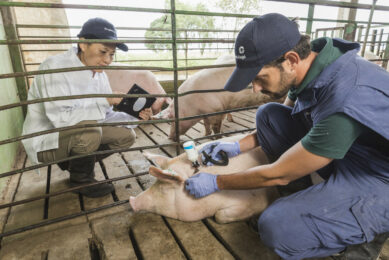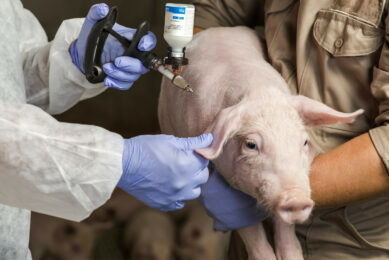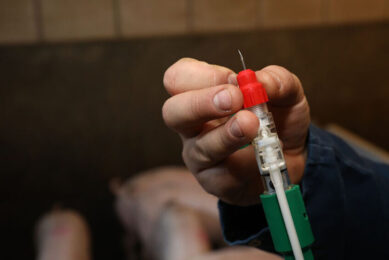Mycoplasma vaccination should be done early
Vaccination of piglets as early as seven days of age is the best way to prevent enzootic pneumonia, says professor Stan Done, senior veterinary investigation officer, at the Veterinary Laboratory Agency (VLA) at Thirsk, Yorkshire, UK.
Enzootic pneumonia results from an infection involving Mycoplasma hyopneumoniae.
Early vaccination facilitates slow acquisition of Mycoplasma in the face of a rising local and cellular immune response, and prevents either early or late onset of disease. It is, Done says, “the best option to prevent colonisation by large numbers of mycoplasmas in the nursery.”
High prevalence
With many producers still using continuous flow systems, UK farms have a high prevalence of Mycoplasma which builds up early in the nurseries and early finishing, says Done.
“Recent research has suggested that one infected pig during the nursery phase will infect at least one more pig during this period. These animals may then infect a large number of piglets during the finishing period,” he says.
“The main burden of infection occurs at around four to eight weeks of age when maternal antibodies have disappeared and pigs are moved, mixed and introduced to new sources of mycoplasma.”
Vaccinating sows
Professor Done says that under most UK conditions it is best to avoid vaccinating sows as this may protect piglets for too long, preventing an early slow acquisition of Mycoplasma which is necessary to facilitate active immunity without clinical infection.
Once acquired, mycoplasma is slow to be cleared as it is a surface-living agent. It may be present 180 days after infection.
Related website:











